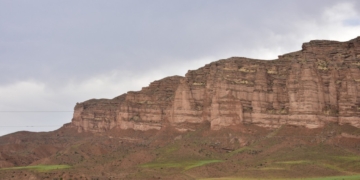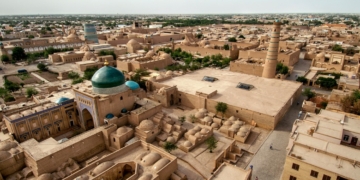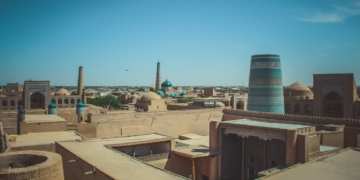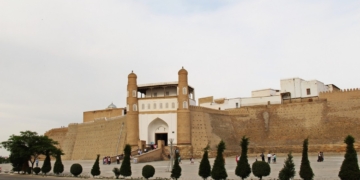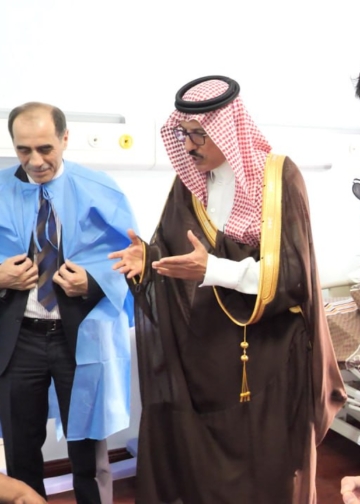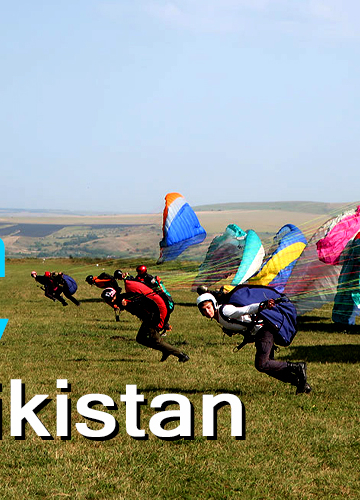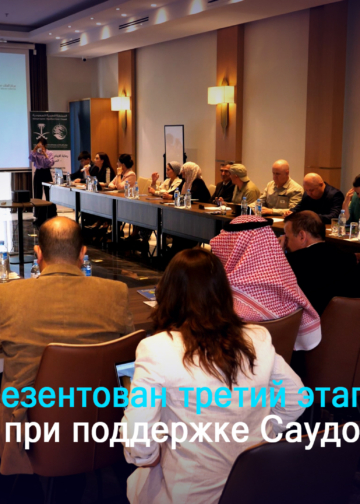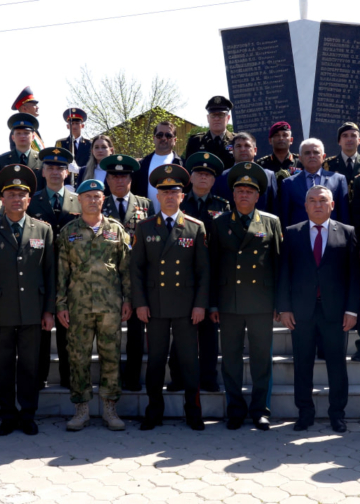id: 103179
date: 4/4/2007 12:36
refid: 07DUSHANBE509
origin: Embassy Dushanbe
classification: CONFIDENTIAL
destination:
header:
VZCZCXRO4250
RR RUEHDBU
DE RUEHDBU #0509/01 0941236
ZNY CCCCC ZZH
R 041236Z APR 07
FM AMEMBASSY DUSHANBE
TO RUEHC/SECSTATE WASHDC 9985
INFO RUCNCIS/CIS COLLECTIVE
RUEAIIA/CIA WASHDC
RHEFDIA/DIA WASHINGTON DC
RHEHAAA/NATIONAL SECURITY COUNCIL WASHINGTON DC
RUEHBUL/AMEMBASSY KABUL 2031
RUEHIL/AMEMBASSY ISLAMABAD 2068
RUEHNE/AMEMBASSY NEW DELHI 2039
RUEHVEN/USMISSION USOSCE 1943
RUCNDT/USMISSION USUN NEW YORK 1425
RUEHDBU/AMEMBASSY DUSHANBE 1633
—————— header ends —————-
C O N F I D E N T I A L SECTION 01 OF 02 DUSHANBE 000509
SIPDIS
SIPDIS
STATE FOR SCA/CEN, DRL
E.O. 12958: DECL: 4/3/2017
TAGS: PGOV, PREL, ECON, EAID, KPAO, TI
SUBJECT: TAJIKISTAN BANKERS EXCHANGE: ANOTHER SET OF CONVERTS
CLASSIFIED BY: TJACOBSON, AMBASSADOR, STATE, STATE.
REASON: 1.4 (b), (d)
1. (U) Summary: «Washington is the city of
smiles!!» At an
International Visitor Program exchange debrief March 28,
Tajikistan’s top bankers marveled as much about the technical
and practical lessons observed in the U.S. banking system, as
about at the openness of U.S. society and economy, and the
warmth of the Americans they encountered during their February
22- March 3 visit. The visitor
program — designed to give
professionals exposure to U.S. practices and leaders — hit its
target with a bang, leaving the Tajiks appreciative of the
high-level attention and filled with ideas to continue the
mutual understanding «exchange» aspect, by inviting U.S.
bankers
to visit Tajikistan and getting technical assistance. Post can
use the new level of cooperation and goodwill to push for more
regulatory and macro-economic reform, and hopes to leverage this
through continued visits and attention from Washington. End
Summary.
Strong Impressions
—————————
2. (U) Despite the far-fetched
(or face saving) observation
that «U.S. Banks are just like Tajik banks, only you deal with
billions of dollars, and we deal with hundreds of somonis,» the
heads of Tajikistan’s top four banks and a National Bank
official gained a solid respect for the regulatory and
management facets of the U.S. system.
In an animated debriefing
the bankers thanked the Embassy for arranging such «high-level
meetings» and spelled out some the things they found most
impressive in the U.S. banking sector:
—The U.S. Federal Reserve System
—Module Management plans from Citibank
—Bankers’ Associations: Saidmurodov, head of Agroinvest Bank
observed that Tajik banks have no formal mechanism to lobby the
government in their interest.
— Credit bureaus
— Credit Unions: Izatullo
Lalbekov, head of Tojiksoditorot
Bank joined a savings association in Dallas, and marveled that
with only $5 down, he could get access to credit
—The New York Stock Exchange:
«We’ve been trying to do this
for three years in Tajikistan, and we are still at zero.»
3. (U) ~and in the United States
in general:
— U.S. Agricultural production: «Twenty percent of your
population is farmers and manage to feed the other 80%, where in
Tajikistan, 70 percent of the population farms and still cannot
feed the remaining 30%.»
(Note: We didn’t explain the
population involved in agriculture was actually much, much less
that 20%. End Note)
—Democracy: Said Lalbekov: «People on the ground level have the
right to express their points of view or wishes. If I saw
someone wearing shorts in my village, I would make him change
his clothes. But in the United
States, everyone has the right
to do what they want.»
—American hospitality: «People were so smiley,» they all
noticed, particularly in Washington and Texas.
What Next?
——————-
4. (U) The bankers all hoped to
implement some of the processes
they observed, but noted they would need technical assistance
for some, including the following:
— An association of bankers
— Use of business plans
DUSHANBE 00000509 002 OF 002
— Money laundering regulations
— A stock exchange. Hasan
Sadulloev, head of Orionbank,
Tajikistan’s largest commercial bank, requested technical
assistance from the United States in helping establish a stock
exchange in Dushanbe
5. (U) Mahmadamin Mahadaminov,
head of Amonat State Savings
bank requested technical assistance for English language
proposal writing, as well as further exchanges for bankers and
their staff. The bankers proposed
inviting U.S. bankers to
Tajikistan to show off their country and industry.
6. (SBU) At a reception March 30, Turakul Haqnazarov,
the head
of the National Banks’ Banking Supervision department told
PolOff the visit had been very successful, but bankers he
accompanied still had many lessons to learn about supervision
and banking systems. The program
had opened their eyes to some
of the regulatory aspects that they had previously ignored.
«Still, we need to keep repeating the lessons.»
Next Steps
—————
7. (U) USAID’s Banking Supervision program has
helped push
Tajikistan’s banking supervision towards the modern age, but
will need continued support and funding.
8. (U) Post would welcome visits,
short or long-term, from
officials who would reinforce the message about banking systems
and structures. Post also
requests technical assistance on
money laundering regulations, either through visits or training
programs for bankers and legislators.
9. (C) Comment: The composition of the delegation made this
program particularly important and successful in getting our
message on economic reform and U.S. values to Tajikistan’s top
leadership. Sadulloev is not just
the Orionbank head, but
President Rahmonov’s brother-in-law, key confidant and advisor.
Due to his heavy workload, he agreed to participate only after
strong requests from the Ambassador and others. His exposure to
U.S. banks and top-level officials may have provided us with a
backdoor to the somewhat isolated President Rahmonov. Programs
like this are the best way we can compete with the Russians and
Iranians for influence and access. End Comment.
JACOBSON
=======================CABLE ENDS============================
id: 103333
date: 4/5/2007 3:26
refid: 07DUSHANBE512
origin: Embassy Dushanbe
classification: UNCLASSIFIED//FOR OFFICIAL USE ONLY
destination:
header:
VZCZCXRO5349
RR RUEHLN RUEHVK RUEHYG
DE RUEHDBU #0512/01 0950326
ZNR UUUUU ZZH
R 050326Z APR 07
FM AMEMBASSY DUSHANBE
TO RUEHC/SECSTATE WASHDC 9991
INFO RUCNCIS/CIS COLLECTIVE
RUEAIIA/CIA WASHINGTON DC
RHEFDIA/DIA WASHINGTON DC
RUEHNE/AMEMBASSY NEW DELHI 2041
RUEHIL/AMEMBASSY ISLAMABAD 2070
RUEHBUL/AMEMBASSY KABUL 2033
RHEHAAA/NATIONAL SECURITY COUNCIL WASHINGTON DC
RUEHDBU/AMEMBASSY DUSHANBE 1639
—————— header ends —————-
UNCLAS SECTION 01 OF 02 DUSHANBE 000512
SIPDIS
SENSITIVE
SIPDIS
FOR SCA/CEN
E.O. 12958: N/A
TAGS: PREL, PGOV, ECON, KPAO, TI, RS
SUBJECT: HIGH LEVEL OF INTEREST IN U.S. POLICIES AT A TAJIK-RUSSIAN
COOPERATION CONFERENCE
DUSHANBE 00000512 001.2 OF 002
1. (SBU) Summary: Despite several swipes by Russian
Ambassador
Ramazan Abdulatipov at the United States, participants in a
conference on Tajik-Russian relations showed sincere interest in
U.S. policy goals. While the
March 28-29 conference on «Russian
and Central Asia and the Conditions of Geopolitical
Transformation» was geared towards examining Russian-Tajik
cooperation, the moderator was quite pleased to have a
representative present from the U.S. embassy, and unexpectedly
asked PolOff to give two separate impromptu presentations
regarding U.S. foreign policy and investment in Tajikistan. The
conference brought together Tajik government officials,
diplomats from most foreign missions in Dushanbe, two
individuals from the Moscow State Institute for International
Affairs (MGIMO), local professors and some journalists, and shed
light of the sometimes tense dynamic between Tajikistan and
Russia over political and cultural questions. END SUMMARY.
2. (U) As portraits of both President Putin and
President
Rahmonov hung above the podium looking down at speakers at
Dushanbe’s Russian-Tajik Slavonic University, Russian Ambassador
to Tajikistan Abdulatipov gave the opening address, and
highlighted areas of cooperation between Russia and Tajikistan,
including construction of the Sangtuda-I hydropower plant. He
further asserted that no other country was currently doing more
to help the development of Tajikistan, and specifically
mentioned that Russia was ready to expand cooperation in the new
«multi-polar world.»
3. (SBU) At times, Tajik and
Russian government officials
exchanged some testy comments, particularly over the role of the
Russian language in Tajikistan.
Some Tajiks argued that it was
not necessary for Tajik youth to study Russian, since Tajikistan
was now an independent country.
Some Russians replied that
learning Russian would open up additional possibilities for the
Tajik youths, particularly for the millions of Tajiks who go to
Russia to work as migrant workers.
A Russian professor also
referred to local conflicts in Central Asia. After her remarks,
one Tajik government official berated her for her «unacceptable
comments,» particularly for using the term «local conflict,»
since all issues in Central Asia also had a direct effect on
Russia.
4. (U) Most of the presentations maintained a
neutral stance
towards U.S. policy in Tajikistan, with the exception of one
professor, who claimed that one
of the main U.S. goals in
invading Afghanistan was to apply pressure on Iran. The
moderator noticed PolOff’s visible disagreement, and offered
PolOff the opportunity to give an impromptu retort. Many people
asked questions about specific U.S. economic programs in the
region, and asked PolOff to give a lengthier presentation the
following day, citing figures of U.S. investment in Tajikistan.
Following the second address, attendees asked more follow-up
questions than any other presenter received.
5. (U) A Tajik professor stated that he understood
the U.S.’s
need to protect itself, but queried when the U.S. government
would start to think about the needs of other countries. PolOff
cited Tajikistan as an excellent example of a country that the
United States was assisting, noting the U.S. Ambassador would be
attending a ceremony the following day to give local Tajik
hospitals $14 million worth of medical supplies. Others claimed
that there was a vacuum of information about U.S. policy. A
senior Russian diplomat gave the closing address, and
specifically thanked PolOff for explaining U.S. goals and
assistance programs to Tajikistan, and highlighting the fact
that other countries were also actively assisting Tajikistan.
6. (SBU) Comment: The conference
highlighted the mixed
sentiments towards U.S. policy in Tajikistan from Russians and
Tajiks and demonstrated the need for more aggressive public
diplomacy outreach to convey the U.S. message. It also
underscored the tension that sometimes exists between the
Russians and Tajiks over their bilateral cultural and political
relationship. Though Abdulatipov
only attended the morning
session of the first day, he treated this meeting as if it were
a Russian embassy staff meeting.
After a Tajik government
official made a comment about the threat of Islamic extremism,
he immediately grabbed the microphone and lectured this
individual that he needed to be careful when using the phrase
«Islamic extremism,» since all religions were connected to one
another, and extremism existed in many other religions besides
Islam. Abdulatipov is a Tatar
Muslim, and appeared to have
interpreted the comment to mean that Islam was the only religion
DUSHANBE 00000512 002.2 OF 002
with which extremists were associated, which appeared to have
struck a nerve. End Comment.
JACOBSON
=======================CABLE ENDS============================
id: 103547
date: 4/6/2007 11:04
refid: 07DUSHANBE517
origin: Embassy Dushanbe
classification: UNCLASSIFIED
destination:
header:
VZCZCXRO7085
RR RUEHLN RUEHVK RUEHYG
DE RUEHDBU #0517/01 0961104
ZNR UUUUU ZZH
R 061104Z APR 07
FM AMEMBASSY DUSHANBE
TO RUEHC/SECSTATE WASHDC 9996
INFO RUEHBUL/AMEMBASSY KABUL 2035
RUEHIL/AMEMBASSY ISLAMABAD 2072
RUEHNE/AMEMBASSY NEW DELHI 2043
RUEAIIA/CIA WASHINGTON DC
RHEFDIA/DIA WASHINGTON DC
RHEHAAA/NATIONAL SECURITY COUNCIL WASHINGTON DC
RUCNCIS/CIS COLLECTIVE
RUEHDBU/AMEMBASSY DUSHANBE 1645
—————— header ends —————-
UNCLAS SECTION 01 OF 02 DUSHANBE 000517
SIPDIS
SIPDIS
FOR SCA/CEN
E.O. 12958: N/A
TAGS: PGOV, PREL, PHUM, KDEM, TI, KZ
SUBJECT: TAJIK ISLAMIC LEADER POINTS OUT WEAKNESSES IN CENTRAL ASIA
DUSHANBE 00000517 001.2 OF 002
1. (U) Summary: At an April 5 conference on
«Kazakhstan’s Role
and Place in Central Asia» participants took a few gentle stabs
at the United States, particularly over the security situation
in Afghanistan but otherwise remained neutral. Islamic
Renaissance Party of Tajikistan (IRPT) leader Muhiddin Kabiri
commented that the true difficulty in integrating the region was
the presence of authoritarian leaders in Central Asia, who would
never cede power to a larger entity.
2. (U) Erlan Abildaev, the Kazakh Ambassador to
Tajikistan,
opened the conference at the President’s Center for Strategic
Research by highlighting the dynamic and growing relations
between Kazakhstan and Tajikistan.
He commented that both
countries faced common threats of narcotics and extremism, and
that Kazakhstan was ready and willing to expand relations with
Tajikistan as the economic leader of the region to help mitigate
these threats. Abildaev added
that Kazakhstan was politically
stable, with gender equality, and a safe place to invest money.
Kazakhstan was working to diversify its economy. He added that
it was important for Kazakhstan and Tajikistan to expand their
relations since they «needed each other,» and since Kazakhstan
had large reserves of oil and gas, and Tajikistan has great
hydropower potential. Abildaev
also reported that Kazakhstan
was in the process of legalizing a migrant strategy for those
Tajiks who were beginning to move to Kazakhstan as migrant
workers — a policy that could benefit both countries.
3. (U) Abdunabi Sattarov,
Assistant Director of the Center for
Strategic Research, highlighted the fact that while the Central
Asian republics participated in organizations such as the
Shanghai Cooperation Organization (SCO) and the Organization for
Collective Security, there currently did not exist a body that
consisted of only the Central Asian states. He commented that
such an organization would be helpful to better coordinate and
integrate their activities. While
most participants viewed
integration in a positive way, one professor stated his view
that integration would mean «death» for Tajikistan.
4. (U) The most interesting comments of the day came
from
Islamic Renaissance Party of Tajikistan (IRPT) leader Muhiddin
Kabiri, who observed that Central Asia still faced problems of
authoritarianism; interestingly, he provided some rare words of
praise for the late President Niyazov of Turkmenistan, aka
«Turkmenbashi.» Though
he was not a perfect President,
according to Kabiri, he provided his people with free water and
gas, fulfilled his promises and «was honest with his people.»
Kabiri commented that Kazakhstan was also the only country in
Central Asia that was thinking about its future, helped by the
fact that the country had an adequate number of intellectuals
and elites to comprehend and solve their problems. Tajikistan
and Uzbekistan, on the contrary, were still arguing with one
another over which was a better and more important country — an
attitude that impeded solving their current problems. He
believed that integration of Central Asia would be difficult,
since most Central Asian leaders were more interested in ruling
their own countries, and were not willing to cede power to a
larger entity. These leaders did
not recognize the threats that
narcotics or extremism posed to their countries; rather, these
authoritarian rulers were more concerned about stifling new
ideas that could threaten their grip on power.
5. (U) Kabiri further added that countries currently
investing
in Tajikistan, including China, Russian, Iran and the United
States were investing political capital, rather than
humanitarian assistance. He specifically
stated that the United
States was solely building the Pyanj River bridge «to connect
Tajikistan to its allies,» and did not have the interests of the
Tajik people at heart. He ended
his presentation by stating
that democracy did not currently exist in Tajikistan — only an
«imitation of democracy.»
6. (U) Despite Kabiri’s blunt
remarks regarding the current
absence of democracy in Tajikistan, the Tajik government
officials present allowed him to speak and did not attempt to
refute him. When one professor
attempted to challenge Kabiri on
one of his points, the moderator cut him off, and stated,
«Historians and politicians are always free to express their own
opinions.» The conference
was overall neutral towards U.S.
policy in the region, despite a few gentle stabs against the
security situation in Afghanistan.
Several speakers questioned
whether or not the U.S. would fail in Afghanistan as the Soviets
had (when Tajikistan was part of the Soviet Union), but most
acknowledged that Tajikistan wanted stability in Afghanistan to
prevent the Taliban from establishing positions closer to their
border. Also of note, several
presenters made repeated
DUSHANBE 00000517 002.2 OF 002
7. (U) Comment: Tajikistan has
had a rash of conferences of
late, many commemorating 15 years of independence, but few lead
to real dialogue or honest exchanges of opinion. Kabiri’s
comments were remarkably candid for the setting. As the United
States continues to push for regional integration, the Central
Asians’ own perspectives on the region are important to
consider. End Comment.
JACOBSON
=======================CABLE ENDS============================
id: 103550
date: 4/6/2007 11:22
refid: 07DUSHANBE518
origin: Embassy Dushanbe
classification: CONFIDENTIAL
destination: 07DUSHANBE443|07DUSHANBE501
header:
VZCZCXRO7097
PP RUEHDBU
DE RUEHDBU #0518 0961122
ZNY CCCCC ZZH
P R 061122Z APR 07
FM AMEMBASSY DUSHANBE
TO RUEHC/SECSTATE WASHDC PRIORITY 9998
INFO RUEHNE/AMEMBASSY NEW DELHI 2045
RUEHDBU/AMEMBASSY DUSHANBE 1647
RUCNCIS/CIS COLLECTIVE
RUEAIIA/CIA WASHINGTON DC
RHEFDIA/DIA WASHINGTON DC
RHEHAAA/NSC WASHINGTON DC
RUEHBUL/AMEMBASSY KABUL 2037
RUEHIL/AMEMBASSY ISLAMABAD 2074
—————— header ends —————-
C O N F I D E N T I A L DUSHANBE 000518
SIPDIS
SIPDIS
STATE FOR SCA/CEN, DRL
E.O. 12958: DECL: 4/6/2017
TAGS: PGOV, PHUM, CASC, KDEM, TI
SUBJECT: FAITH-BASED NGO GIVEN BREATHING ROOM
REF: A) DUSHANBE 443 B) DUSHANBE
501
CLASSIFIED BY: Tracey A. Jacobson, Ambassador, U.S. Embassy
Dushanbe, STATE.
REASON: 1.4 (b), (d)
1. (C) Summary:
Operation Mercy got a reprieve April 5 when
the Ministry of Foreign Affairs announced the expatriate members
could remain in country on their current visas. Consular
Department Chief Bahrom Kholnazarov gave ConOff no reason for
the about-face, but we strongly believe this to the result of
strong protests from the U.S. and British ambassadors about the
legality and procedures followed.
The Operation Mercy case
provides an interesting example of the power struggle between
the Ministries of Foreign Affairs and Justice, and possibly the
State Committee on National Security.
It also serves as
evidence that the Tajik government will sometimes respond to
coordinated international pressure.
End Summary.
2. (C) Ministry of Foreign Affairs Consular
Department Chief
Bahrom Kholnazarov urgently summoned ConOff the morning of April
5. Almost one week had passed
since ConOff had first started
calling Kholnazarov to request a meeting regarding the expulsion
of Operation Mercy’s foreign staff from Tajikistan (reftel A).
After a few pleasantries, Kholnazarov cut to the chase and told
ConOff, «The question is resolved.» When ConOff asked
Kholnazarov for clarification, Kholnazarov said that the foreign
staff of Operation Mercy would be permitted to stay in
Tajikistan on their current visas, as long as the courts were
working through the case. Asked
to specify that this meant work
visas, Kholnazarov said yes, and that the decision applied to
all foreign staff, not only the U.S. citizens. Post expects to
receive a diplomatic note by the end of the week confirming
these details.
3. (C) Kholnazarov expressed his regret that this
situation
had progressed to this point. He
told ConOff that it was
«unfortunate» that he had not been informed by Operation Mercy
earlier about its problems, as he may have been able to do
something. Now, he said, the
problem had become much more
complicated. (Kholnazarov did not
specify how he could have
helped Operation Mercy earlier.)
According to Operation Mercy
director Paul Linge, the Ministry of Justice had pursued his
organization because of its unlicensed English language courses,
but was not pressing for its expulsion from Tajikistan.
Instead, the pressure seemed to stem from the State Committee
for National Security, the former KGB, which has been
interviewing local Christians about Operation Mercy’s activities
and may have subsequently pressured Foreign Affairs to cancel
the visas. Linge also noted that
Operation Mercy’s problems
began in earnest after a downsizing in which he let two
employees go, whom he later learned were government informants.
4.(C) Kholnazarov informed ConOff
that Linge was scheduled to
meet with Minister of Foreign Affairs
Zaripov an hour later to
explain Operation Mercy’s mission in Tajikistan. Linge called
ConOff after the meeting to confirm that Zaripov repeated what
Kholnazarov told ConOff: let the
courts decide the case.
Operation Mercy’s staff can remain in country on the visas they
currently possess.
5.(C) Comment: The Ministry of
Foreign Affairs’ sudden
turn-around on the visa revocation for the American, European
and Australian staff was an important correction of a situation
that should have not have existed in the first place. However,
the entire affair demonstrates just how tenuous the operating
conditions for non-governmental organizations in Tajikistan can
be. More than likely, the
about-face was a result of
coordinated diplomatic pressure from the American and British
Embassies, including the Ambassador’s raising it personally with
Zaripov (reftel B).
Unfortunately, the case may not be entirely
closed — if the appeals process with the Ministry of Justice
and Education fails to produce a license for Operation Mercy, it
is possible the international staff will not receive renewals
when their visas expire. This has
at least allowed the Ministry
of Foreign Affairs to save face, and the expatriate staff to
remain in country…for the time being.
End Comment.
JACOBSON
HUSHEK
=======================CABLE ENDS============================
id: 103638
date: 4/9/2007 7:20
refid: 07DUSHANBE525
origin: Embassy Dushanbe
classification: UNCLASSIFIED//FOR OFFICIAL USE ONLY
destination:
header:
VZCZCXRO8223
PP RUEHLN RUEHVK RUEHYG
DE RUEHDBU #0525/01 0990720
ZNR UUUUU ZZH
P R 090720Z APR 07
FM AMEMBASSY DUSHANBE
TO RUEHC/SECSTATE WASHDC PRIORITY 0006
INFO RUCNCIS/CIS COLLECTIVE
RUEAIIA/CIA WASHINGTON DC
RHEFDIA/DIA WASHINGTON DC
RHEHAAA/NSC WASHINGTON DC
RUEHBUL/AMEMBASSY KABUL 2041
RUEHIL/AMEMBASSY ISLAMABAD 2075
RUEHNE/AMEMBASSY NEW DELHI 2046
RUEHDBU/AMEMBASSY DUSHANBE 1658
—————— header ends —————-
UNCLAS SECTION 01 OF 04 DUSHANBE 000525
SIPDIS
SENSITIVE
SIPDIS
STATE FOR SCA/CEN, DRL
E.O. 12958: N/A
TAGS: PGOV, PREL, ECON, EAID, TI
SUBJECT: TAJIKISTAN AT THE CROSSROADS
DUSHANBE 00000525 001.2 OF 004
1. (SBU) Five months after the
presidential election secured
President Rahmonov a third seven-year term, Tajikistan seems to
have stalled on the road of reform.
Throughout 2006, Rahmonov
assured international visitors and his public alike that «after
the election,» new blood and new ideas would take Tajikistan to
a new era of economic prosperity and open civil society. This
has not happened.
2. (SBU) Instead of steering his
country towards much needed
reform and growth, we see a number of worrying tendencies in
Rahmonov’s leadership and government.
Increased unconditional
economic assistance from China and Iran undermine the importance
of creating a business climate that attracts private investors,
and the pernicious little-brother-big-brother relationship with
Russia works against the U.S. (and European) programs on rule of
law and good governance. Without
sufficient incentives to
correct these growing tendencies, Tajikistan will risk becoming
a less stable, less prosperous country mired in poverty,
unemployment and clan politics.
3. (SBU) Rahmonov has not changed his «open
door» policy of
working with all countries and united diplomatic pressure can
still counter some of the repressive tendencies. Recently,
coordinated efforts by the U.S and European missions and other
donors convinced the government not to expel expatriates working
for a registered non-governmental organization, and helped slow
the passage of a controversial law on public associations. We
still have the opportunity to influence Rahmonov and his
government, but it will take heavy diplomatic push, and
coordination with like-minded donors.
The Backwards Trajectory
————————————
4. (SBU) A number of trends raise
concerns about the direction
Tajikistan is moving:
— Tighter government control:
Since the November 2006
presidential election and the government restructuring,
Rahmonov’s administration seems to be sliding backwards,
employing more Soviet era tactics for controlling all elements
of society. Various ministries,
including Justice, Foreign
Affairs and Education, have cracked down on non-governmental
organizations, using legal proceedings and extra-legal
bureaucratic tactics to threaten expatriate workers with
expulsion, prevent import of radio equipment, and refuse
registration. The government has
restricted freedom of religion
by shutting down a number of mosques and used licensing
requirements to prevent them from operating legally. Police
have rounded up children found in mosques during the day.
Government agencies have increased registration and reporting
requirements for all organizations, local and international.
Government agencies frequently demand a formal diplomatic note
and the Foreign Minister’s permission before agreeing to meet a
diplomat or non-governmental organization representative, even
at the working level. Moving the
Anti-Monopoly Committee into
the Ministry of Economy further consolidates government control
of what should serve as an independent watch-dog agency.
— Smaller, less competent inner circle:
Despite Rahmonov’s
claims that his new cabinet brought in new blood, the same
favorites are at the table, just in different chairs. In the
worst cases, like the Ministry of Energy and Industry, an
unqualified presidential relative replaced technically
experienced ministers. Rahmonov’s
top economic advisors —
«first brother-in-law» Hasan Sadulloev, head of Orion Bank,
and
uncle Matlubhon Davlatov, Presidential Economic Advisor — have
made considerable fortunes through privatization of Tajik state
enterprises, but do not have the education or experience
required to bring a post-conflict country with few resources
into the global economy.
— Little political will to go beyond rhetoric: Rahmonov can
talk the talk about democracy, land reform, and anti-corruption
measures, but has shown little inclination to do more than spout
donor-pleasing window-dressing rhetoric.
His fight against
corruption is weakened by the fact that the new «Agency to Fight
Corruption» is headed by Sherhon Salimov, a former Dushanbe city
prosecutor believed to have substantially enriched himself
through government service.
Recent government rhetoric about
rooting out corruption has been aimed at inconsequential targets
— teachers supplementing their $20 per month salaries and
students driving nice cars — but has avoided top-level
DUSHANBE 00000525 002.2 OF 004
offenders. After the presidential
election, the government has
cracked down harder on free media and non-governmental
organizations, rather than loosening up conditions, as senior
officials predicted. Internet
sites were closed before the
election, and some remain blocked.
Several local newspapers
remain unregistered and the government tightly monitors
Tajikistan’s few printing presses.
The parliament only stalled
passage of the government-supported draft Law on Public
Associations after significant international and local
objections to the legislation which would have introduced more
stringent rules on registration and government oversight.
— Finally, some public outcry:
Tajiks largely believe
political protests and street demonstrations sparked the
1992-1997 civil war, and until recently most citizens have been
too afraid to criticize Rahmonov or organize any public action
that could be perceived as threatening stability. However, the
consistent lack of electricity in rural districts during a cold
winter has led to a number of spontaneous public protests.
Reports of women marching on a local government building,
protesters tearing up pictures of Rahmonov and citizens
vandalizing a local factory that had electricity while the town
remained in the dark suggest that Tajiks may slowly be growing
tired of the terrible living conditions and demand more from the
government. Dushanbe residents
living in an area slated to be
razed for the expansion of the presidential dacha also wrote an
open letter to Rahmonov, complaining of the proposed seizure of
their homes to support a new urban plan.
These small acts of
public advocacy are unusual in the complacent post-war
Tajikistan but could indicate mounting dissatisfaction with
Rahmonov’s regime.
Tajikistan at a Crossroads
——————————-
5. (SBU) Although Tajikistan has slid backwards in
many areas,
it still sits at a crossroads, figuratively and geographically.
On the positive side, Rahmonov remains genuinely popular and at
the very least knows the buzzwords Western donors and investors
want to hear: anti-corruption, democracy, free elections, a
better business climate, investing in health and education. His
government restructuring demonstrates that on the surface,
Tajikistan can respond to donor suggestions for better
governance, and we see signs of progress in local governance and
decentralization. The economy is
growing — more cars on the
street, more goods in the markets, and a construction boom
driving up rents. Tajikistan’s
cooperation on counter-narcotics
and counter-terrorism programs has given us a reliable partner
for regional security, particularly in regards to Afghanistan.
Should these patterns continue, Tajikistan could have the basis
for a prosperous and stable country, despite the tough
neighborhood.
6. (SBU) But things could easily
move in another direction.
Rahmonov has not always demonstrated the political will or
bureaucratic tenacity to
implement fully all the changes he
touts, Nepotism and regionalism
prevent almost any talented
newcomer not from Danghara or well-connected in the system from
rising above the rank of department head in a ministry. The
older Soviet-trained bureaucracy is having trouble adjusting to
new realities; and the crumbling education system shows little
promise of training competent replacements.
7. (SBU) Rahmonov’s recurring
emphasis on Tajikistan’s Persian
roots seems mostly symbolic and has not contributed visibly to
national unity. During the Navruz
Persian New Year festival
March 21-22, Rahmonov publicly announced he was changing his
name to «Rahmon» rather than the Russified Rahmonov, as a sign
of respect for his Persian heritage.
(Comment: One theory
suggests he changed his name so it could rhyme better in poetry.
End Comment.) Rahmonov hosted a trilateral
Iranian-Afghan-Tajik summit in July 2006, and he declared 2006
the Year of Arian Culture (probably not understanding how that
resonates in Western ears).
8. (SBU) The Persian push is, in
part, a search for national
symbols and identity other than Islam.
The Tajik authorities
still maintain strong feelings against anything resembling
Islamic fundamentalism. However,
Rahmonov’s recent trips to
Syria, Egypt and the United Arab Emirates show Rahmonov is
willing to take advantage of Tajikistan’s Muslim heritage too,
especially as he seeks closer ties with other Muslim countries
that do not necessarily support democratic change or economic
DUSHANBE 00000525 003.2 OF 004
freedom. The recent announcement
by the Tajik Deputy Prime
Minister supporting Iran’s rights to peaceful nuclear technology
is probably equal parts pan-Persian solidarity and support for
the greater Islamic world, mixed with a dose of practical
recognition that Iran is a useful donor.
9. (SBU) Meanwhile, the crumbling
education and health
infrastructure has left the next generation of Tajiks with
significantly fewer intellectuals capable of managing
Tajikistan. The paucity of
English speakers-and opportunities
to learn English-means that Tajikistan continually looks to
Russia and Russian-speaking countries, rather than seriously
engaging India and Pakistan.
10. (SBU) Iran, Russia and China
all exert increasing influence
on Tajikistan through substantial infrastructure projects
totaling more than $1 billion.
This influx of investment funds
allows the Tajik government to brush aside the U.S. message that
fiscal responsibility, an improved business climate, rule of
law, and transparent and accountable institutions are necessary
to attract investment. Tajik
authorities still believe the
relative lack of U.S. direct investment is a political decision
of the U.S. government and for the most part fail to understand
the economic implications of their own political decisions,
e.g., clamping down on free media and NGOs. Despite its lack of
capacity and natural resources, Tajikistan seeks to follow
China’s development model — something that does not necessarily
bode well for our priority of promoting just governance.
How the U.S. can nudge Tajikistan down the right path
——————————————— —————
———
11. (SBU) In a risk-averse
culture like Tajikistan, change
comes in increments and we still have a window to help
Tajikistan move in the direction of democratic growth and
political stability. Our current
assistance programs do provide
important support in key sectors, including security and
counter-narcotics, agriculture, education, health and
governance. But it will take
heavy engagement in three key
areas to make meaningful progress in putting Tajikistan on the
right path:
Educational and professional exchanges
——————————————— ———
12. (SBU) If we want Tajiks to
have a model other than China,
Russian or Iran, we need to provide them the opportunity to see
another way of living and doing business, through increased
exchange programs. Tajiks pay
lip-service to the ideas of
democracy and market economics, but real change only comes when
the officials and leaders exposed to these ideals in practice
also have the capacity and influence to internalize the message
and advocate for reform. True
reform is a long-term goal, which
is why we were particularly disappointed to learn of the 10% cut
to our FLEX (Future Leaders) program.
The Future Leaders
program has a potentially greater impact than any of our other
exchanges, as it gives citizens of an isolated country the
ability to develop an appreciation for democracy and an
understanding of individual rights and responsibilities, while
they are still young enough to absorb fully the messages (and
are more likely that older educational exchange students to
return home.)
13. (SBU) Peace Corps would also
be a tremendous public
diplomacy and assistance tool.
Nothing has an impact on a poor,
isolated country like a cadre of motivated young Americans
living in communities, teaching English or small business
development and sharing U.S. values and ideals. A program in
Tajikistan would also train a group of public service-minded
Americans in Farsi much better than the current push to increase
Farsi training in U.S. universities.
High-level visits
———————
14. (SBU) It’s all about the
relationship-building here.
Offering and accepting hospitality, sharing some toasts, and
slowly building a personal connection cannot be achieved without
regular interaction. High-level visits allow visitors and post
to make personal connections with top decision makers that
DUSHANBE 00000525 004.2 OF 004
result in back doors to President Rahmonov and a real
relationship of mutual understanding.
The August bridge opening
will be a good opportunity for high-level interaction focusing
on our mutual goals of regional integration and border security.
Grassroots assistance programs
——————————————— ——
15. (SBU) Tajikistan desperately
needs assistance programs that
build capacity on the local level.
Existing USAID programs such
as the Water Users’ Associations and the local government
project have strong track records on teaching local officials
and communities accountable and responsible governance. They
create an organic kind of civil society with an immediate
impact, and in the current political environment, they
effectively demonstrate to average Tajiks the tangible benefits
of democracy. At the moment, we
get more traction and progress
from of these kinds of democracy programs, than the
politically-charged projects with political parties that cannot
operate due to government pressure. Only when there is a base of
grassroots activism will Tajiks look to political parties to
represent their interests.
16. (SBU) Comment: Tajikistan may not seem like a front-burner
priority as long as it remains relatively stable in a region
with other problems. But we must
work now to counter the
backward trend towards an authoritarian government and declining
human capacity if we are to avoid future instability. End
Comment.
JACOBSON
=======================CABLE ENDS============================
id: 103649
date: 4/9/2007 9:58
refid: 07DUSHANBE527
origin: Embassy Dushanbe
classification: CONFIDENTIAL
destination: 07DUSHANBE525|07DUSHANBE527
header:
VZCZCXRO8317
PP RUEHDBU
DE RUEHDBU #0527/01 0990958
ZNY CCCCC ZZH
P R 090958Z APR 07
FM AMEMBASSY DUSHANBE
TO RUEHC/SECSTATE WASHDC PRIORITY 0013
INFO RUCNCIS/CIS COLLECTIVE
RUEAIIA/CIA WASHINGTON DC
RHEFDIA/DIA WASHINGTON DC
RHEHAAA/NSC WASHINGTON DC
RUEHBUL/AMEMBASSY KABUL 2045
RUEHIL/AMEMBASSY ISLAMABAD 2079
RUEHNE/AMEMBASSY NEW DELHI 2050
RUEHDBU/AMEMBASSY DUSHANBE 1665
—————— header ends —————-
C O N F I D E N T I A L SECTION 01 OF 02 DUSHANBE 000527
SIPDIS
SIPDIS
STATE FOR SCA/CEN, DRL
E.O. 12958: DECL: 4/9/2017
TAGS: PGOV, PREL, ECON, EAID, TI
SUBJECT: SETTING THE SCENE FOR DAS FEIGENBAUM’S APRIL 12-15 VISIT
REF: DUSHANBE 525
CLASSIFIED BY: Tracey Ann Jacobson, Ambassador, U.S. Embassy,
Dushanbe, State.
REASON: 1.4 (b)
1. (C) Seven months after your last visit, you will
find a
Tajikistan that has set aside the promises of the November 2006
election, to a government less worried about international
perceptions and more confident in tightening its control over
society and the economy.
President Rahmonov’s ministers and
advisors continue to argue for the need for stability before
democracy, and economics before politics. Dushanbe 525 lays out
the bigger picture of Tajikistan’s state of play, but your
challenge remains the same as in August 2006. You may find
yourself repeating the messages you delivered clearly then:
democracy and rule of law are essential for economic growth and
true political and regional stability, even in post-civil war
Tajikistan.
2. (C) Your key themes — reform
and regional integration —
will certainly yield a thoughtful discussion from your Tajik
counterparts, who understand what the United States and other
western and multilateral donors want to see happen in
Tajikistan, but deep down, they may not share the same
fundamental vision. The
Russian-influenced mistrust of
non-governmental organizations, particularly those involved in
democracy or media activities, has created a number of problems
for U.S. assistance implementers and called into question the
Tajik government’s seriousness about creating a more open
political environment — and improving the climate for private
investment.
Reform
————
3. (C) The Tajik government is still not sold on the
benefits
of democratic reform or political openness. Its looks at
Ukraine, Georgia and particularly Kyrgyzstan, and questions what
good could come out of allowing more political expression and
the development of political parties.
They may not like
Uzbekistan, but the Tajiks admire the «stability» Karimov’s
regime has wrought and count on the international community to
give Tajikistan leeway as long as it remains better than
Uzbekistan and Turkmenistan — the bad examples in the region.
We must convince the Tajik government that creating democratic
institutions and practices — such as a reformed judiciary that
promotes rule of law, a parliament that is educated and engaged
in legislating, rather than serving as a rubber stamp, and a
freer media to inform its citizenry — are steps that will
actually be in the government’s interest, and not threaten
President Rahmonov’s authority.
4. (C) Economic reform is more palatable, and the
government
has taken a few small steps towards improving the investment
climate, such as a new law on inspections that could cut the
number of inspections in half, a new Committee on Investments
and State Property and an Agency to Fight Corruption and
Economic Crimes aimed at rooting out corruption on all levels.
How these new initiatives are implemented will demonstrate how
serious Tajikistan is about linking itself to the global economy.
5. (C) Government officials will likely try to parry
any
discussion of better governance and democratic reform with a
request for U.S. investment in the economy and infrastructure.
Given the steady flow of state-funded investment from China,
Iran and Russia in hydropower, transmission lines, telecom,
roads and tunnels, the Tajiks will be looking for the same kind
of engagement from the United States — and will be less
interested in hearing that they should improve their business
climate to attract private companies.
6. (C) You will be asked about debt relief. Despite taking on
more than $800 million in low-interest Chinese loans in the last
year, the Tajiks will continue to press the United States to
forgive $17 million in debt from the war years.
Regional integration
—————————-
7. (C) Although the Tajik government shares our
enthusiasm for
regional integration, Tajik officials define «region»
differently, and cannot talk about regional issues without
including Uzbekistan. Uzbekistan
causes Tajikistan serious
DUSHANBE 00000527 002 OF 002
problems with electricity and gas, customs, imports, exports,
visas, landmines, water sharing and even locusts. The August
opening of the U.S.-funded bridge at Nizhniy Pyanj will allow
the Tajiks more opportunity to bypass Uzbekistan and look to
South Asia as a commercial destination and partner.
8. (C) Afghanistan remains a subject of great
concern, and the
Tajiks may press you to do more to stabilize their neighbor.
You can assure them that we continue to look for ways to
integrate Tajikistan and Afghanistan economically and welcome
the positive role Tajikistan can play in building Afghanistan’s
capacity. You can also press for
more accountability and
responsiveness on our border programs.
Since the reorganization
of the Border Guards under the State Committee for National
Security, the cooperation has come into question.
Fifteen years and counting
————————————
9. (C) Your April 13 Keynote speech at the conference on the
«Fifteenth Anniversary of U.S.-Tajik relations» presents a
wonderful chance to highlight the substantial amount of U.S.
assistance and our areas of cooperation.
It is also an
opportunity to outline the U.S. vision for the region and the
bilateral relationship. We look
forward to your visit and the
dialogue it will bring.
JACOBSON
=======================CABLE ENDS============================
id: 104083
date: 4/12/2007 9:58
refid: 07ANKARA847
origin: Embassy Ankara
classification: CONFIDENTIAL
destination: 07ANKARA489|07ANKARA779
header:
VZCZCXRO3923
PP RUEHDBU
DE RUEHAK #0847/01 1020958
ZNY CCCCC ZZH
P 120958Z APR 07 ZDK CTG HCB 9755
FM AMEMBASSY ANKARA
TO RUEHC/SECSTATE WASHDC PRIORITY 1686
INFO RUEHAH/AMEMBASSY ASHGABAT 1935
RUEHTA/AMEMBASSY ASTANA 0008
RUEHTH/AMEMBASSY ATHENS 7973
RUEHKB/AMEMBASSY BAKU 1480
RUEHEK/AMEMBASSY BISHKEK 0361
RUEHBM/AMEMBASSY BUCHAREST 0978
RUEHDM/AMEMBASSY DAMASCUS 1638
RUEHDBU/AMEMBASSY DUSHANBE
RUEHMO/AMEMBASSY MOSCOW 5535
RUEHNC/AMEMBASSY NICOSIA 6652
RUEHSF/AMEMBASSY SOFIA 1140
RUEHNT/AMEMBASSY TASHKENT 0764
RUEHSI/AMEMBASSY TBILISI 3095
RUEHYE/AMEMBASSY YEREVAN 1278
RHMFISS/HQ USEUCOM VAIHINGEN GE
RHEFDIA/DIA WASHINGTON DC
RHMFISS/HQ USCENTCOM MACDILL AFB FL
RUEKJCS/JOINT STAFF WASHDC//JSJ3//
RUEKJCS/SECDEF WASHDC
RUEHNO/USMISSION USNATO 5613
RUEHAK/USDAO ANKARA TU
RUEHKB/USDAO BAKU AJ
—————— header ends —————-
C O N F I D E N T I A L SECTION 01 OF 03 ANKARA 000847
SIPDIS
SIPDIS
E.O. 12958: DECL: 04/12/2017
TAGS: PREL, MASS, MARR, PINS, ZJ, ZK, AJ, GG, TI, RS, TU
SUBJECT: LOOKING EAST: TURKEY’S MILITARY INVESTS IN THE
CAUCASUS AND CENTRAL ASIA
REF: A. ANKARA 0489
B. ANKARA 0779
ANKARA 00000847 001.2 OF 003
Classified By: Pol Mil Counselor Carl Siebentritt for
reasons 1.4 (b/d)
——-
Summary
——-
1. (C) Turkey has invested heavily in its security
relationships in the Caucasus and Central Asia, with the bulk
of its military assistance going to Azerbaijan. Turkey
provides security assistance funds and training to all the
countries in the region except Armenia and Uzbekistan.
Historical and cultural ties, expanding commercial interests,
strategic competition with Russia and Iran, and
disenchantment with Euro-Atlantic relations are the
traditional drivers of Turkey’s interest in the east.
Increasingly, however, military officials justify intensified
security ties by citing threats to energy security from
perceived Russian conniving with Armenia and Iran to «breach»
U.S.-supported east-west routes for Caspian energy. Turkish
officials tell us they would welcome closer collaboration
with the U.S. in this region, but intend to move slowly to
avoid irritating Russia. End
Summary.
——————————————— —
Turkey-Azerbaijan: «One Nation but Two States»
——————————————— —
2. (C) Turkey’s military relations with Azerbaijan, which
Turkey perceives as its strategic bridge to Central Asia, are
the strongest in the region and the most extensive with any
country except the U.S. With
close ethnic and cultural ties,
Turkey and Azerbaijan are «one nation, but two states,»
according to one Turkish general.
The Turkish General Staff
tells us Turkey has provided approximately USD 600 million in
military assistance to Azerbaijan since 1998, focused on
training, improving force readiness, and adapting Azeri
equipment and doctrine to NATO standards. Azerbaijan
benefits particularly from the Partnership for Peace (PFP)
program, according to Turkish observers, who claim that
military training has boosted the confidence of Azeri
military forces. The Turkish
military mission in Azerbaijan
currently includes 46 instructors and staff at the Turkish
designed and built military academy.
Meanwhile, over 200
Azeri officers and cadets have been trained in Turkey,
including at Turkey’s PFP Center.
3. (C) Turkey and Azerbaijan announced a joint high level
commission to coordinate military cooperation and mutual
security assistance in February 2007 during a visit to Baku
by Deputy Chief of the Turkish General Staff (DCHOD) GEN
Ergin Saygun. TGS officials say
the commission, chaired by
Saygun and Azerbaijani Defense Minister Safar Aliyev, will
have logistics, political-military, and defense industry
components. Prior to Saygun’s
visit to Baku, Aliyev met with
Chief of the Turkish General Staff (CHOD) GEN Yasar Buyukanit
on February 5 in Ankara to discuss military cooperation. We
understand that a three-star billet has been created for a
Turkish general to become a senior advisor to Aliyev.
4. (C) The TGS has flagged the strategic importance to Turkey
of the east-west energy corridor from Azerbaijan, comprised
of the Baku-Tbilisi-Ceyhan (BTC) oil pipeline, which became
operational in May 2006, and a parallel new line that is
expected to pump Azeri gas to the Turkish grid at the eastern
Turkish city of Erzurum later this year.
A new rail line has
ANKARA 00000847 002.2 OF 003
also been undertaken which will — when complete — link Baku
to the Turkish rail network at Kars (and completely bypass
Armenia). The TGS is very
concerned that Russia is conniving
with Armenia and Iran to breach this east-west energy
corridor by pushing north-south alternatives (ref a),
including a Russia-Armenia-Iran pipeline and construction of
a refinery in Armenia near the Iranian border.
——————
Isolating Armenia
——————
5. (C) Accelerated Turkish military ties with Azerbaijan are
also intended to isolate Armenia.
The Turkish-Armenian
border has been closed since the Nagorno-Karabakh conflict
and the countries have no bilateral security cooperation.
Military officials note that Armenian officers have been
invited to training at Turkey’s Partnership for Peace Center
and a senior Armenian officer attended the Silk Road flag
officer seminar hosted by Turkey.
However, Armenia has never
reciprocated, they complain, and has used NATO and PFP fora
to push the for recognition of an Armenian genocide. Turkish
officers cite Armenia’s close relations with Russia as a
major impediment to Turkish plans for greater engagement with
Central Asia (ref b).
——————————
Keeping the Georgians in Line
——————————
6. (C) While Turkey has sought closer relations with Georgia,
including military ties, it views Tbilisi’s recent stance
toward Russia as unnecessarily and dangerously provocative,
and has urged Georgia to be more cautious. Turkish officials
have told us they support Georgia’s NATO ambitions but are
not quite as optimistic as the U.S. that a Membership Action
Plan will temper Tbilisi’s rhetoric towards Russia. An MFA
official told us that Turkey’s security assistance to Georgia
is calibrated by Ankara’s concerns for what it considers
«inexperienced and reckless leadership» vis-a-vis Russia.
7. (C) Turkish observers view Georgia’s political environment
as the most fragile in the Caucasus.
Nevertheless, the TGS
reports that Turkey has provided Georgia with over USD 70
million in bilateral military aid in recent years and has
trained 65 Georgian military personnel in Turkey, including
border





























